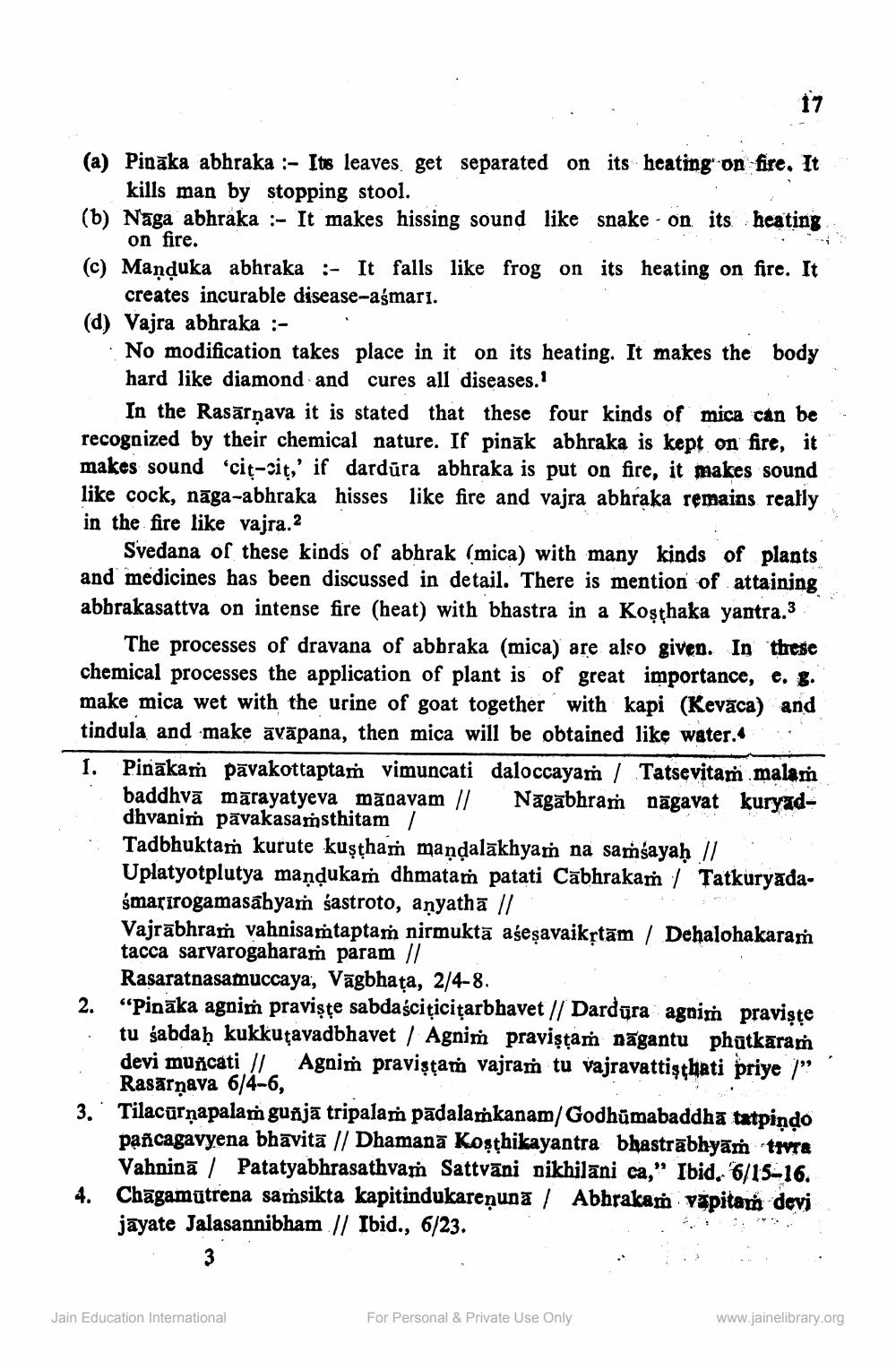________________
17
(a) Pināka abhraka :- Its leaves, get separated on its heating on fire. It
kills man by stopping stool. (b) Naga abhráka :- It makes hissing sound like snake - on its heating
on fire. (c) Manduka abhraka :- It falls like frog on its heating on fire. It
creates incurable disease-aśmari. (d) Vajra abhraka :· No modification takes place in it on its heating. It makes the body hard like diamond and cures all diseases."
In the Rasārņava it is stated that these four kinds of mica can be :recognized by their chemical nature. If pinakabhraka is kept on fire, it makes sound 'cit-cit,' if dardūra abhraka is put on fire, it makes sound like cock, nāga-abhraka hisses like fire and vajra abhraka remains really in the fire like vajra.2
Svedana of these kinds of abhrak (mica) with many kinds of plants and medicines has been discussed in detail. There is mention of attaining abbrakasattva on intense fire (heat) with bhastra in a Koșthaka yantra.3
The processes of dravana of abbraka (mica) are also given. In these chemical processes the application of plant is of great importance, e, g. make mica wet with the urine of goat together with kapi (Kevāca) and tindula and make avāpana, then mica will be obtained like water. 1. Pinākam pāvakottaptam vimuncati daloccayam / Tatsevitam malam
baddhvā mūrayatyeva mūgavam || Nagabhram nagavat kuryaddhvanim pavakasamsthitam / Tadbhuktam kurute kuştham mandalākhyam na samsayaḥ 11 Uplatyotplutya maņņukam dhmatam patati Cābhrakam | Tatkuryadasmarırogamasāhyam śastroto, anyathā // Vajrābhraṁ vahnisamtaptam nirmuktā aģeşavaikstām / Dehalohakaram tacca sarvarogaharam param // Rasaratnasamuccaya, Vägbhața, 2/4-8. "Pināka agnim pravişte sabdaścițicitarbhavet // Dardura agnim pravişte tu šabdaḥ kukkutavadbhavet | Agnim praviştam nāgantu phatkāram devi muncati || Agnim praviştam vajram tu vajravattişthati priye /
Rasārņava 6/4-6, 3. Tilacūrņapalam guajā tripalam pādalamkanam/Godhūmabaddha tætpiņdo
pancagavyena bhavitā || Dhamana Kosthikayantra bhastrabhyām tira
Vahninā / Patatyabhrasathvaṁ Sattvāni Dikhjlāni ca,” Ibid. 6/15-16. 4. Chāgamutrena samsikta kapitindukareņuna | Abhrakam vipitar devi
jayate Jalasannibham // Ibid., 6/23.
3
Jain Education International
For Personal & Private Use Only
www.jainelibrary.org




